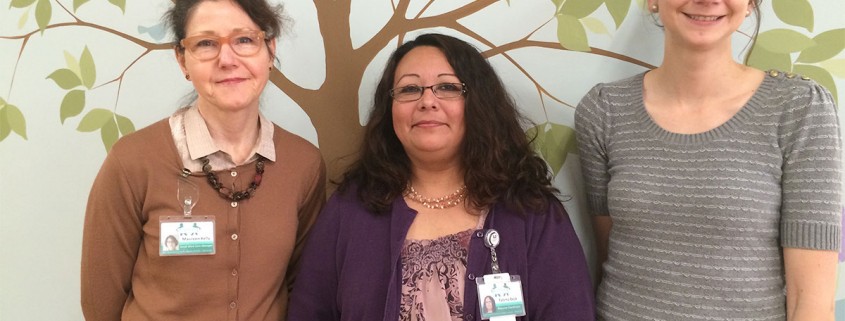Walking (and Rolling) to Feed Children
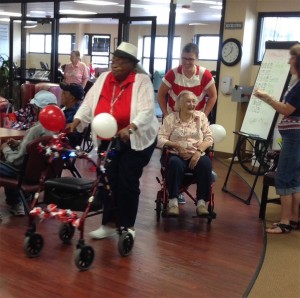 Cat Balentine is the occupational therapist at Piedmont Health SeniorCare, located in Burlington, NC. The mission of Piedmont Health SeniorCare is “…to promote and sustain the independence of seniors wishing to remain in the community.”
Cat Balentine is the occupational therapist at Piedmont Health SeniorCare, located in Burlington, NC. The mission of Piedmont Health SeniorCare is “…to promote and sustain the independence of seniors wishing to remain in the community.”
Recently, Feed the Hunger received a gift of over $388 from this organization to provide life-sustaining food for children and families in need. Curious about the gift, we just had to find out the motivation behind it. What we found is a remarkable idea carried out by some incredible individuals!
Here’s their story. Back in 2013, the goal was to transform the afternoon “walking group” into an opportunity for participants to give back to the community. Working as a team, the group decided to raise funds that would be donated to a designated nonprofit cause or charity selected by the participants. Balentine says, “The program not only motivates some to be more active and promotes overall wellness, but it also gives our participants the opportunity to feel part of a group and allows them to feel in a way that they may not feel anymore, like they are a contributing member of society.”
Participants have an opportunity to walk – or roll – every day. Their laps are tallied daily and totals are kept. At the end of the month, total mileage is calculated, donations are gathered, and funds are sent to the designated group(s).
Over the last two years, Team PACE (Program of All-inclusive Care for the Elderly) has logged 1,195 miles, raising $9,157 and benefitting 24 different organizations.
So, in August of this year, Team PACE logged 75 miles, which brought in $388 for Feed the Hunger. $388 provides 1,385 meals for malnourished children here in the US as well as around the world. The diagram below may help you visualize this a little better. The money raised by Team PACE is the equivalent of providing five children a nutritious meal each and every day of the school year. What a blessing!
A group of super seniors showed me how much fun it can be to raise money for a worthwhile cause. Now it’s your turn. How can YOU creatively provide more meals to those in need? We’d love to hear your comments!
Jim Gurley
Director of Development
Feed the Hunger
(original article located at: http://www.feedthehunger.org/walking-and-rolling-to-feed-children/)


 “The President’s signature caps a more than two-year effort to provide opportunities for the PACE model to be used as a platform for innovation to serve more seniors as well as younger individuals in need of integrated care and services,” said Shawn Bloom, president and CEO of NPA. “We look forward to working with CMS to develop opportunities for PACE providers and others to develop new pilot programs that will take the lessons learned from PACE and apply them to new populations and more communities.”
“The President’s signature caps a more than two-year effort to provide opportunities for the PACE model to be used as a platform for innovation to serve more seniors as well as younger individuals in need of integrated care and services,” said Shawn Bloom, president and CEO of NPA. “We look forward to working with CMS to develop opportunities for PACE providers and others to develop new pilot programs that will take the lessons learned from PACE and apply them to new populations and more communities.”
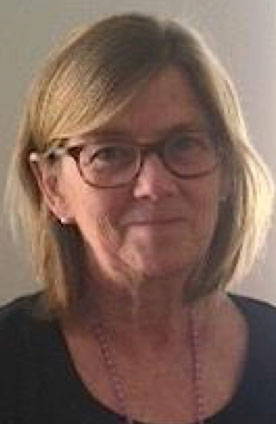 Medical director Dr. Jane Hollingsworth received the North Carolina PACE Association’s individual of merit award for direct care, and was honored at the conference on April 11. Hollingsworth was nominated for her longstanding dedication, compassion and quality care.
Medical director Dr. Jane Hollingsworth received the North Carolina PACE Association’s individual of merit award for direct care, and was honored at the conference on April 11. Hollingsworth was nominated for her longstanding dedication, compassion and quality care.
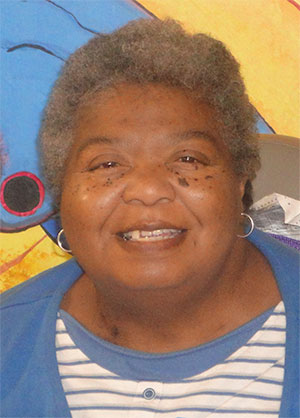 Joanna Foust joined the Pittsboro PACE program at Burlington in September of 2012. The native North Carolinian is the oldest of seven children, born in Roxboro in 1952. Foust suffered from polio as an infant and was in quarantine for a year. She has memories of her loving parents and family helping her through school and her father carrying her into church. Being limited in her mobility, Foust turned to books at a young age and would stay up late at night reading. After many surgeries, Foust was finally able to walk. She was 12 years old. A few years later, she fulfilled her mother’s dream and walked across the stage to receive her high school diploma from Cummings High School and then attended Alamance Community College in Business Administration. Foust became the first African-American manager for Pic & Pay Shoes in Burlington and was employed there for 24 years, setting up stores in Durham, Greensboro and Raleigh.
Joanna Foust joined the Pittsboro PACE program at Burlington in September of 2012. The native North Carolinian is the oldest of seven children, born in Roxboro in 1952. Foust suffered from polio as an infant and was in quarantine for a year. She has memories of her loving parents and family helping her through school and her father carrying her into church. Being limited in her mobility, Foust turned to books at a young age and would stay up late at night reading. After many surgeries, Foust was finally able to walk. She was 12 years old. A few years later, she fulfilled her mother’s dream and walked across the stage to receive her high school diploma from Cummings High School and then attended Alamance Community College in Business Administration. Foust became the first African-American manager for Pic & Pay Shoes in Burlington and was employed there for 24 years, setting up stores in Durham, Greensboro and Raleigh.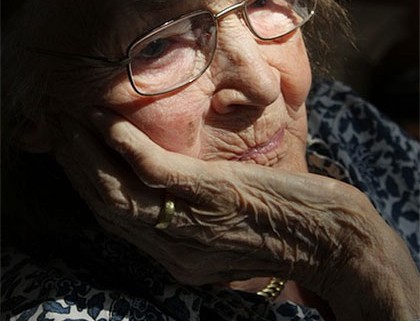
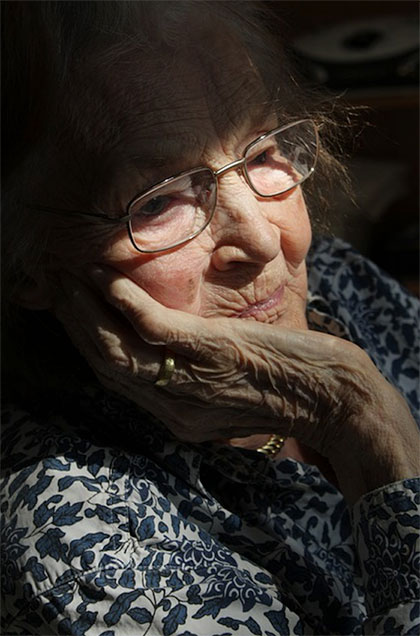 Piedmont Health SeniorCare, in collaboration with the Alzheimer’s Association Eastern North Carolina Chapter, will be holding a series of educational events starting this month. The events are free and open to the public and will be held at the Pittsboro site. Contact Karin Wannaker, 919-545-7337 for more information. Join us on the following dates:
Piedmont Health SeniorCare, in collaboration with the Alzheimer’s Association Eastern North Carolina Chapter, will be holding a series of educational events starting this month. The events are free and open to the public and will be held at the Pittsboro site. Contact Karin Wannaker, 919-545-7337 for more information. Join us on the following dates:
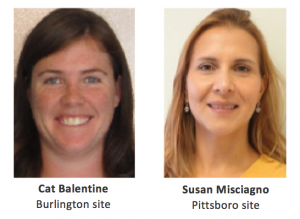 April is National Occupational Therapy month; PACE occupational therapists Cat Balentine and Susan Misciagno go above and beyond to encourage our seniors to be active members in their treatment plans and in their community. For example, each OT leads exercise groups to facilitate healthy lifestyles.
April is National Occupational Therapy month; PACE occupational therapists Cat Balentine and Susan Misciagno go above and beyond to encourage our seniors to be active members in their treatment plans and in their community. For example, each OT leads exercise groups to facilitate healthy lifestyles.



 By the end of this month, PACE participants should receive a pre-notification mailing about the annual Health Outcomes Survey. The first questionnaire mailings will be sent out to PACE participants the week of April 6.
By the end of this month, PACE participants should receive a pre-notification mailing about the annual Health Outcomes Survey. The first questionnaire mailings will be sent out to PACE participants the week of April 6.